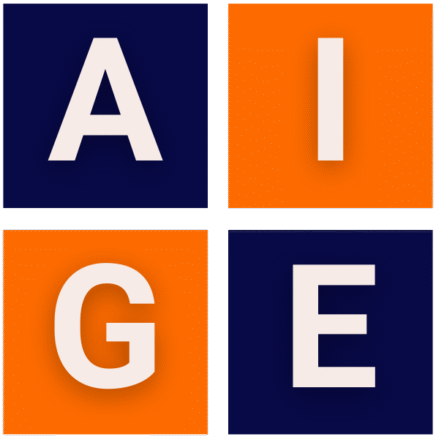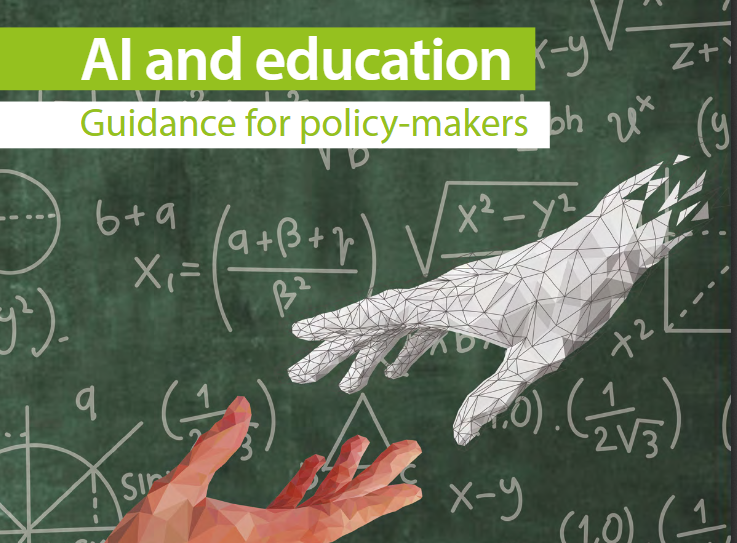The UNESCO AI in Education initiative explores the transformative role of artificial intelligence in shaping the future of global education. With AI rapidly influencing teaching, learning, and education management, UNESCO aims to ensure that AI technologies are harnessed responsibly, equitably, and in alignment with human rights and sustainable development goals.
Purpose
- To promote the ethical and inclusive use of AI in education.
- To support policymakers, educators, and institutions in leveraging AI to improve learning outcomes and operational efficiency.
- To ensure AI adoption in education aligns with UNESCO’s human-centered approach, emphasizing fairness, transparency, and accountability.
Opportunities
AI presents several opportunities for enhancing global education by:
- Personalizing Learning: Adaptive AI-driven learning systems can tailor instruction to individual students, accommodating diverse learning styles and paces.
- Supporting Educators: AI can assist teachers by automating administrative tasks, generating learning materials, and providing real-time feedback on student progress.
- Improving Access and Inclusion: AI-powered tools, such as language translation and assistive technologies, can bridge learning gaps for marginalized communities, students with disabilities, and non-native speakers.
- Enhancing Policy and Decision-Making: AI-driven analytics enable education policymakers to track student performance, predict learning trends, and optimize resource allocation.
Challenges
Despite its potential, AI integration in education also presents significant challenges:
- Bias and Inequity: AI systems may reinforce social and economic disparities if not carefully designed and implemented.
- Data Privacy and Security: The use of AI requires robust data protection frameworks to safeguard student and teacher information.
- Dependence on Technology Infrastructure: Effective AI adoption depends on adequate digital infrastructure, which remains unevenly distributed across countries and institutions.
- Ethical and Regulatory Concerns: Transparency, accountability, and human oversight are essential to ensure that AI does not undermine human rights or educational integrity.
Key Guidelines for Implementation
Ethical AI Use in Education:
- Ensure AI aligns with principles of fairness, inclusivity, and non-discrimination.
- Establish clear policies on data protection and privacy.
- Promote transparency in AI decision-making processes.
Capacity Building and Training:
- Provide AI literacy training for educators, students, and policymakers.
- Develop resources to help teachers integrate AI into their pedagogy responsibly.
- Encourage interdisciplinary collaboration between education experts, AI developers, and ethicists.
Governance and Regulation:
- Establish national and international guidelines for AI use in education.
- Promote human oversight in AI-driven decision-making processes.
- Encourage open-source AI tools to enhance accessibility and affordability.
Investments and Future Plans
- AI in Curriculum Development: UNESCO advocates for integrating AI literacy into school and university curricula to equip students with essential digital skills.
- Research and Innovation: Investment in AI research can drive innovations in pedagogy, assessment, and educational management.
- Global Partnerships: UNESCO collaborates with governments, institutions, and private sector stakeholders to promote responsible AI development in education.
Regulatory and Oversight Efforts
- International Standards: UNESCO supports the development of global AI education frameworks to ensure ethical and effective AI implementation.
- Impact Monitoring: Ongoing assessments help evaluate AI’s role in education and address emerging challenges.
- Policy Guidance: UNESCO provides advisory support to governments on AI policy integration, ethical considerations, and digital infrastructure development.

